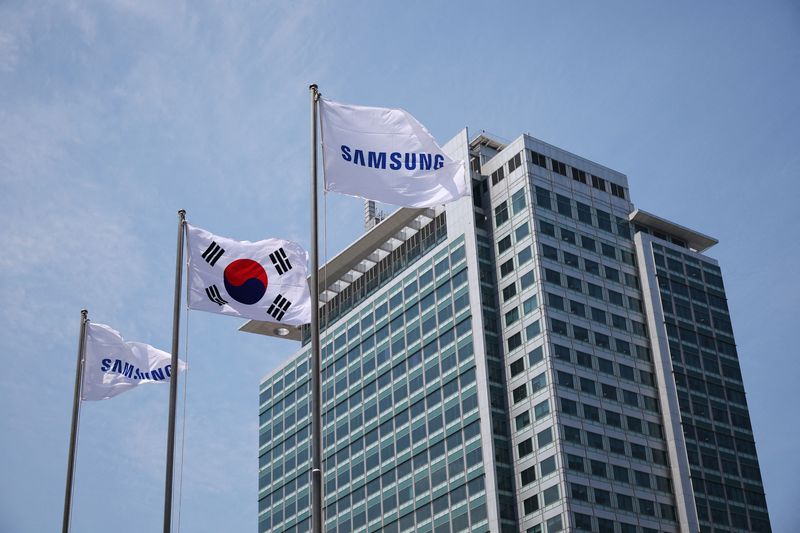By Heekyong Yang
HWASEONG, South Korea (Reuters) – Samsung Electronics workers in South Korea began a three-day strike on Monday for better pay, with the union saying it would take further measures against the country’s largest conglomerate if its demands were not met.
The National Samsung Electronics Union (NSEU), whose approximately 30,000 members make up more than 24% of the company’s workforce in South Korea, also wants an extra day of vacation for unionized workers.
However, analysts do not expect the strike to have a major impact on production at the world’s largest memory chip maker, due to low participation and automated production.
The union last month carried out its first industrial action, coordinating annual leave to effectively stage a mass strike. Samsung has said the action had no impact on business activity.
The company declined to comment on Monday’s strike.
The union, which did not disclose last month’s participation, said 6,540 workers were striking this week, mainly at manufacturing sites and in product development.
On Monday, workers gathered en masse at Samsung’s headquarters in Hwaseong, south of Seoul.
Union president Son Woo-mok disputes media reports of low participation, telling Reuters that the young union, founded five years ago, does not have enough time to train its members.
“Trade union education for union members and workers has not been sufficient. But I don’t think this participation is low because our union is still young compared to other unions,” he said.
Lee Hyun-kuk, a prominent labor leader, said last week that another round of strikes could follow if the demands are not heard this time.
Union officials say the company’s bonus system is unfair because it is calculated by subtracting the cost of capital from operating profits.
Samsung union membership has grown since the tech giant pledged in 2020 to no longer discourage the growth of organized labor.
Analysts say the growth points to a decline in employee loyalty and is an added problem for Samsung as it faces competition for chips for artificial intelligence (AI) applications.
On Friday, Samsung estimated a more than 15-fold increase in second-quarter operating profit as recovering semiconductor prices fueled by the AI boom lifted earnings from a low base a year earlier. Still, the stock underperformed that of chip rival SK Hynix.
The stock rose 0.5% on Monday afternoon, after rising 1.72% earlier in the session to its highest level since January 2021. Last week, the stock rose 6.9% on higher-than-expected preliminary second-quarter earnings.
(Reporting by Heekyong Yang; additional reporting by Jihoon Lee; writing by Ju-min Park; editing by Jamie Freed and Christopher Cushing)







